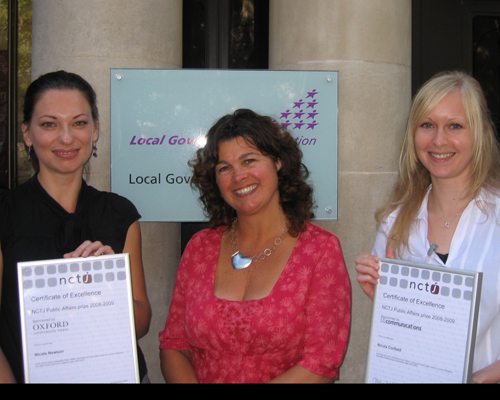This time last year I was set to embark upon the biggest obstacle of my young adult life, the daunting but exciting prospect of trying to start a career in a already overflowing industry with thousands of competitors jostling just to ‘get in’. Yet I’m proof that it can be done, and all it takes is a little self belief and application.
Back in October 2009, only a few months after finishing my course at Coventry University, I was fortunate enough to have been offered a role within the UK’s number one sporting channel, Sky Sports News. This was a dream environment for me to work, as a large amount of student life was lost watching this potentially degree destroying channel.
I was later informed by my boss that over 250 applicants had applied for my Ingest Operator role, a junior position which means I am responsible for live and tape feeds being recorded onto a server to then be played on air, usually as soon as possible, meaning communication with producers, editors and reporters is an essential part of the job. I’m a small but indispensable cog in the wheel of TV News.
My advice for those looking to work in any form of media, whether that be broadcast, online or print, is that enthusiasm is king! Guest speakers at the university’s Coventry Conversation series would often say tell us if we wanted it bad enough, we would get it. That statement could not be any truer.
With the ever increasing number of new media platforms, opportunities for entrepreneurial students are many and varied. There are so many new ways to build a unique portfolio to impress potential employers.
My journey started by charming the producer of a local radio station to give me some work experience. This was a long haul placement which turned into a paid part time job from June until October, when I joined Sky Sports News. The radio station placement gave me valuable basic editing and production experience. Being multi-skilled is vital in today’s newsroom. You can expect to be competing with far too many multi-skilled candidates not to take this seriously.
I undertook other work experience writing for a non-league football website, which gave me a niche to build a portfolio around. Soon I found my work on the BBC local sport web pages.
I also took it upon myself to take a voluntary position as a press secretary for a non league football club, Corinthian-Casuals. This gave me real life match reporting experience, which also got my name in both national and local newspapers.
Finding a niche is an excellent way of standing out from the crowd, and can give you an expertise others may find useful in their companies or websites.
As a journalism or media student, not having a blog to hone your writing skills is unforgivable, and not using applications such as Twitter and Audio Boo to promote your work is a missed opportunity.
Creating opportunities is essential. A few weeks ago I got in contact with Julian March, producer of SkyNews.com, via Twitter and asked if there was any way I could get involved with the election night coverage. He responded within minutes by emailing me internally. He put me in contact with the right people and I ended up on the Sky 100 team on election night, collecting results from the key 100 marginals and getting them on air and on screen as soon as possible.
Enthusiasm is really the key; you can be brilliant at something in this industry but you won’t get anywhere if you aren’t prepared to put in the time and effort. There are just too many other people out there who are.
